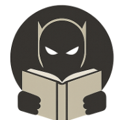B 🌻 A B reviewed Hello World by Hannah Fry
Lightweight
3 stars
An enjoyable read, but if you've watched any of her TV shows, especially "The Secret Genius of Modern Life", then you'll already know the contents of the book. It's not pitched at people who know it all already, but more at your ageing Mum who can't work her smartphone. The eBook also seemed to be 35% footnotes, which means you suddenly end the book without realising just how far through it you actually were.
An enjoyable read, but if you've watched any of her TV shows, especially "The Secret Genius of Modern Life", then you'll already know the contents of the book. It's not pitched at people who know it all already, but more at your ageing Mum who can't work her smartphone. The eBook also seemed to be 35% footnotes, which means you suddenly end the book without realising just how far through it you actually were.








